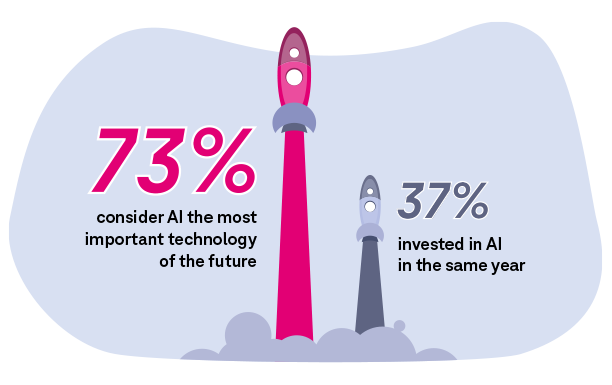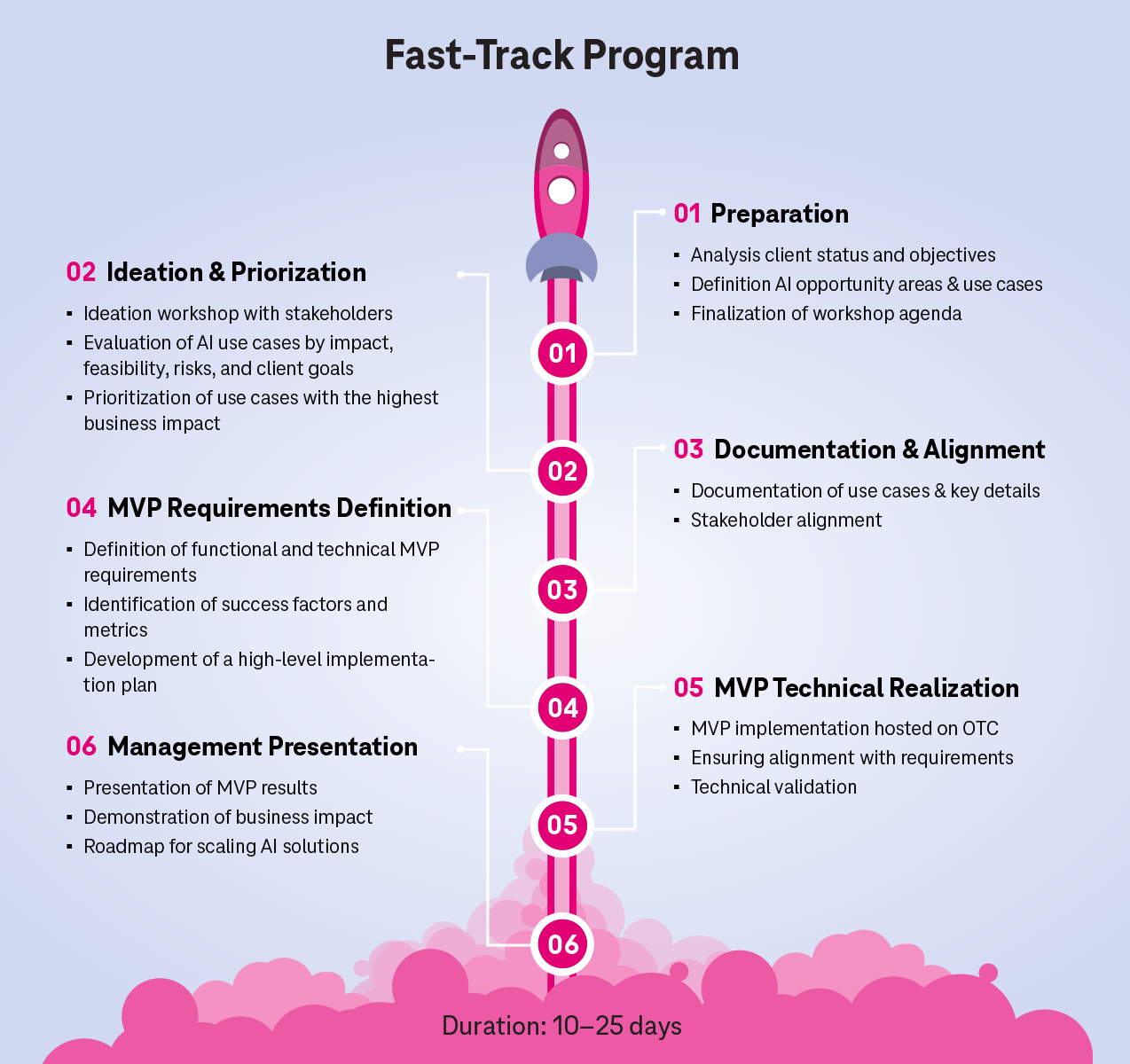Lack of AI skills within the company
In this article, you will learn
- how your business can benefit from artificial intelligence (AI),
- which use cases are emerging and
- how to build your AI skills and implement a solution in just one month.
Why wait? The benefits of AI for businesses are clear. Companies that invest in AI now can gain a competitive edge, especially while many others remain hesitant. AI reduces the burden of repetitive tasks, increases productivity, and offers a powerful response to the growing shortage of skilled workers. It also opens up entirely new opportunities to automate and autonomously optimize business processes.










